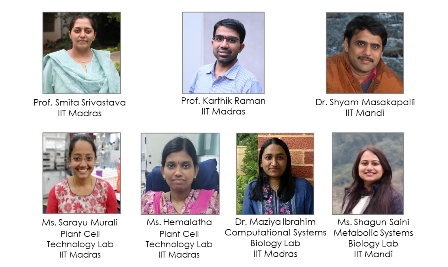
Researchers at IIT Madras and IIT Mandi have successfully metabolically engineered the plant cells of Nothapodytes nimmoniana to significantly increase the production of Camptothecin, a vital component used in cancer treatment.
The breakthrough has been achieved by Sarayu Murali, a PhD student at IIT Madras and a team of experts for developing a genome-scale metabolic model for N. nimmoniana plant cells using computational tools.
Findings of the research have been published by researchers of IIT Madras after identifying a microbe as a sustainable and high yielding alternative source for plant based anti-cancer drug Camptothecin. Nearly a thousand tons of plant material is required to extract just one ton of Camptothecin.
This research holds great promise for the production of cancer-treating drugs, as Camptothecin ranks the third most in-demand alkaloid and is commercially extracted in India from Nothapodytes nimmoniana, an endangered plant, making the newly engineered plant cells a more efficient and eco-friendly solution.
Camptothecin, an essential anti-cancer drug lead molecule, plays a crucial role in the synthesis of drugs like Topotecan and Irinotecan. However, climate change and extensive deforestation for Camptothecin extraction have pushed the source plants into the endangered species category.
The existing method of extraction poses environmental challenges due to the extensive overharvesting of the plant, leading to its inclusion in the IUCN red list, resulting in significant decline of the plant in the last decade.
The recent research has been funded by the Science and Engineering Board (SERB) and the Department of Science and Technology (DST) of the Government of India.
Principal investigator of the research project Prof. Smita Srivastava said, “This signifies integration of metabolic and bioprocess engineering principles for sustainable Camptothecin production.”
“Emphasizing the reconstruction and curation of the metabolic model using in-house experimental data, computational tools were employed to identify and rank suitable enzyme targets for over expression and down regulation, resulting in a five-fold increase in Camptothecin production in N. nimmoniana plant cells,” Surayu Murli said.
Dr. Shyam Kumar Masakapalli from IIT Mandi said , “The research could pave the way for the sustainable bio-manufacturing of high-value phytochemicals in plant cell bio-factories.”

